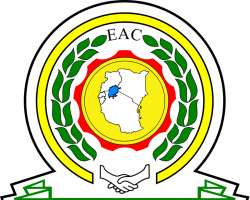UGANDA REVIEWS 12-YEAR EXPERIENCE IN EAC / INTEGRATIONACHIEVEMENTS, OPPORTUNITIES, CHALLENGES AND WAY FORWARD IN INTEGRATION FOR UGANDA

ARUSHA, Tanzania, June 6, 2013/African Press Organization (APO)/ -- A two-day stakeholders' review workshop on the status of the East African Community integration agenda in the Republic of Uganda, Hon. Shem Bageine opened today at Hotel Africana in Kampala with the country's Minister of State for EAC Affairs affirming that “Uganda has always been committed to the ideals of regional integration and has been at the forefront of promoting its objectives”.
In a keynote address Hon. Bageine said Uganda was determined and will continue to play a central role in ensuring that commitments and undertakings under the EAC integration agenda are adhered to and effectively implemented.
Hon. Bageine, who is also the Chairperson of the EAC Council of Ministers noted that the existence of fragmented markets, disjointed industrial value chains, inadequate cross-border infrastructure, and rigid labour markets, uncoordinated investments in research and technology, unless addressed through integration, have the potential to hinder and may reverse Africa's growing socio-economic development and that is why EAC integration was crucial.
The Hon. Minister highlighted some of the challenges of a teething nature impacting on the integration process that include among others, making the EAC a truly people-centred and private sector driven organization; limited awareness about the EAC and its potential benefits; and galvanizing the sufficient amount of popular will for accelerating the pace of EAC integration.
The EAC Secretary General Amb. Dr. Richard Sezibera called for the need to consolidate the Customs Union and the Common Market as a sound basis on which further development of the Community would be anchored.
He said these two pillars were the foundation of the integration process and were stages in which the common citizens of East Africa will feel and see the benefits of regional integration.
Amb. Sezibera noted that the expectations of the people of Uganda were high on the EAC and they expect to see tangible benefits of regional integration and therefore, specific projects of the Community should be identified in the critical sectors and carried through within reasonable time frames.
“The identified projects or generally areas of integration must be properly communicated to the people of Uganda”.
The Secretary General urged the Ministry of EAC Affairs of Uganda to be attuned to systematic coordination, implementation and evaluation of regional projects and programmes.
“Regular, periodic reporting on progress of these projects and programmes should be undertaken and communicated in the country in a manner that reflects on the momentum of regional integration. This process will definitely bring the integration agenda to the people of Uganda,” affirmed the Secretary General.
Uganda's Ministry of EAC Affairs in collaboration with Trademark East Africa organized the review workshop themed Uganda's 12 years experience in the EAC integration: Achievements, Opportunities, Challenges and Way Forward.
The workshop brought together over 200 key stakeholders mainly representatives of the public sector (Government Ministries, Departments and Agencies), Members of Parliament, Heads of Umbrella organizations, the private sector, civil society, the Academia, the development partners and representatives of Ministries of EAC Affairs in the Partner States.
The Permanent Secretary in the Ministry of EAC, Mrs. Edith Mwanje said the workshop deliberated on EAC issues and took stock of the progress made in EAC integration in general, and its realization in the context of Uganda.
She said the review workshop stimulated renewed interest from Ministries, Departments and Agencies (MDAs) and other stakeholders to mainstream EAC integration agenda into their plans and budgets.
“The workshop generated better understanding of the state of play in the implementation of the EAC integration agenda in Uganda and galvanized their support and commitments towards the realization of the objectives of the EAC,” noted Mrs. Mwanje.
